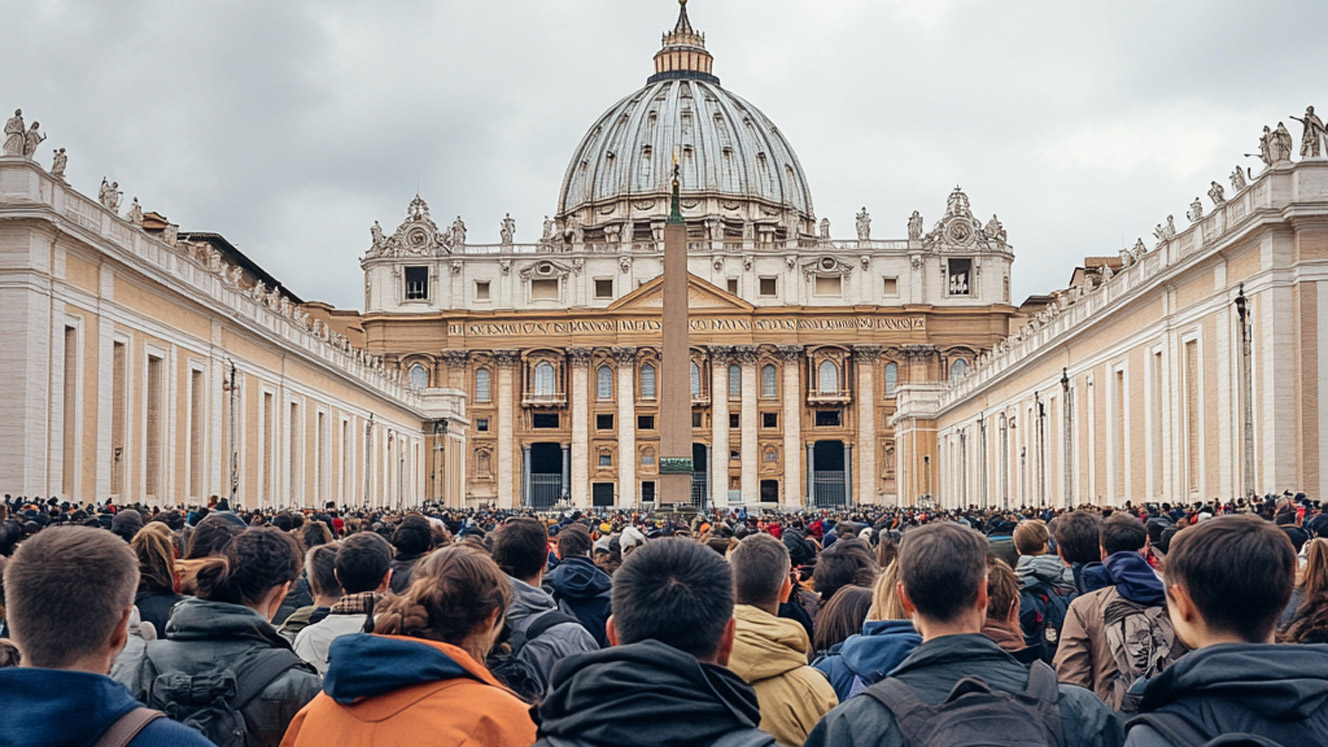With millions of pilgrims arriving in Rome for the Jubilee, public health faces an unprecedented challenge. Seasonal flu has already affected over 5 million Italians, and according to experts, the peak could arrive between mid and late January. However, it’s not just the flu causing concern: the overlap of flu-like syndromes and other respiratory viruses is putting pressure on the healthcare system, with large Jubilee events representing an additional risk factor.
Pilgrimages and Epidemiological Risk
The Jubilee is attracting millions of people from all over the world, concentrating large crowds in busy places such as squares, churches, and public transportation. This phenomenon, as explained by epidemiologist Massimo Ciccozzi from the Campus Bio-Medico in Rome, increases the likelihood of respiratory virus spread. “We’ve seen how mass gatherings can facilitate epidemics, as happened in the past with the pilgrimage to Mecca or the cholera outbreak in Haiti. In this situation as well, epidemiological surveillance will be crucial to prevent public health emergencies.” According to Ciccozzi, with the intensification of Jubilee events in spring, an increase in infections is predictable. “It’s not just about the flu, but also viruses like COVID-19, respiratory syncytial virus (RSV), and rhinoviruses, which could circulate simultaneously, causing similar symptoms and increasing pressure on healthcare providers.”
Seasonal Flu: A Complex Scenario
The influenza virus A-H3N2, nicknamed “Australian Flu”, is particularly aggressive this year, with a greater ability to evade immune defenses. According to Alessandro Rossi, president of the Italian Society of General Medicine (Simg), “The flu epidemic overlaps with the presence of other respiratory viruses, making clinical diagnosis difficult without the use of rapid antigen swabs.” Data confirms the flu’s impact: over 280,000 citizens in Lazio, equivalent to 11% of the population, consulted their doctor for flu-like syndromes in the last week of December. Children up to 4 years old were the most affected, with an incidence rate of 26%, according to the Respirvirnet report by the Istituto Superiore di Sanità (Italian National Institute of Health).
Prevention During the Jubilee
To limit risks, experts recommend simple yet effective preventive measures, such as wearing masks in crowded places, frequent handwashing, and getting the flu vaccine, still available at general practitioners and pediatricians. “Vaccination remains the most effective tool to prevent severe forms of flu, especially among the elderly and vulnerable individuals,” Rossi stated. Furthermore, it’s important to avoid the misuse of medications. Antibiotics, for example, should only be administered in cases of bacterial infections and under medical prescription. Paracetamol is recommended for fever and pain, while non-steroidal anti-inflammatory drugs (NSAIDs) should be used with caution to avoid side effects on the heart, kidneys, and stomach.
The Challenge of Public Health
The Jubilee represents not only a moment of great spiritual significance but also an unprecedented health challenge. The lesson from the COVID-19 pandemic has shown the importance of prevention and epidemiological surveillance in managing risk situations. As Ciccozzi emphasizes: “In a period where mass mobility is inevitable, individual and collective responsibility is fundamental. We must protect the most vulnerable and ensure that public health remains a priority, even during extraordinary events like the Jubilee.” The overlap between seasonal flu, flu-like syndromes, and large events like the Jubilee requires a coordinated approach among citizens, doctors, and institutions. With adequate prevention and proper health measures, it will be possible to face this challenge while ensuring the safety of both pilgrims and the general population.





